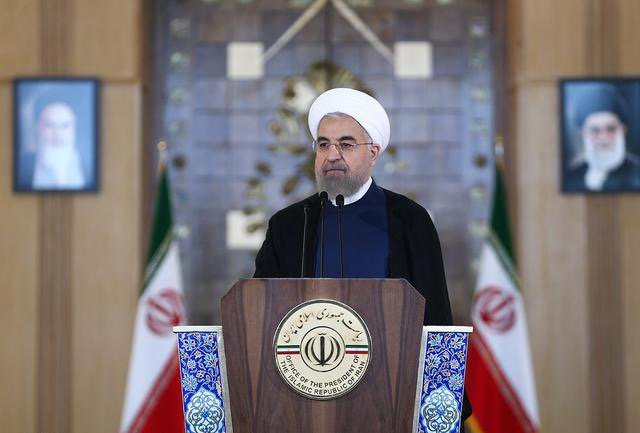Iran's president presented a draft state budget of about $39 billion to parliament on Sunday, saying it was designed to resist US sanctions by limiting dependence on oil exports. Officials have not given figures for the oil price and export volumes used in the calculations, although the IMF has indicated Iran would need oil prices to be triple current levels to balance its budget as its crude exports have plunged.
The United States reimposed sanctions with the aim of driving down Iranian crude sales, the Islamic Republic's main source of revenues after Washington withdrew last year from a nuclear pact between world powers and Iran.
"This is a budget to resist sanctions ... with the least possible dependence on oil," Iranian President Hassan Rouhani told parliament, according to state television. "This budget announces to the world that despite sanctions we can manage the country," he said. He gave the value of the nominally balanced draft budget at 4,845 trillion rials, equivalent to $38.8 billion at the free market exchange rate, for the Iranian year starting on March 20.
The new budget is 10% bigger than this financial year in local currency terms although its dollar value is lower due to annual inflation that is running at about 35%. The budget forecasts revenues for oil, gas and condensates falling 40%, leaving a gap it plans to plug by using state bonds and selling state properties.

Preliminary reports by local news agencies said the budget appeared to be based on oil sales of 500,000 to 1 million barrels per day (bpd). Under U.S. sanctions, analysts estimate Iran's oil exports have tumbled to about 400,000 million bpd or even lower, from more than 2.5 million bpd.
The International Monetary Fund has said Iran would need an oil price of $194.6 a barrel to balance its budget in 2020/2021 and forecast a fiscal deficit of 4.5% of gross domestic product in 2019/2020 and 5.1% in 2020/2021.
Benchmark Brent oil LCOc1 closed at $64.38 on Friday. Analysts have said Iran had probably been forced to sell its crude at a discount to normal levels, as it seeks to entice buyers wary of violating U.S. sanctions.
RUSSIAN LOAN
Although U.S. sanctions on Iran's oil industry have slashed the OPEC member's crude exports by more than 80%, oil product sales remain strong, generating nearly $500 million a month, shipping data and Reuters calculations showed in September.
Unlike Iranian crude, which has distinct characteristics that mean its origin can be traced, the source of refined and other oil products are more difficult to identify. Rouhani said Iran hoped a $5 billion loan which Iran had requested from Russia for development projects would be finalised during the budget year.
Rouhani said Iran would continue to subsidize basic goods and medicine in the budget, based at an exchange rate of 42,000 rials to the dollar, compared to the free market rate of 125,000 rials. Using the lower exchange rates makes them more affordable to ordinary Iranians who have complained of surging prices.
Iran's move to reduce subsidies on gasoline by raising prices by as much as 200% in November led to nationwide protests which quickly turned political as young and working-class protesters demanded clerical leaders step down. A separate draft budget for state companies, institutions and banks allocates them a total of 14,839 trillion rials.









